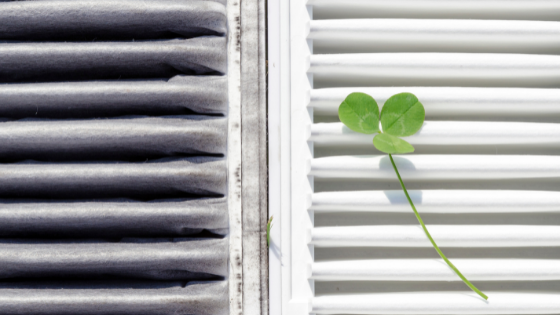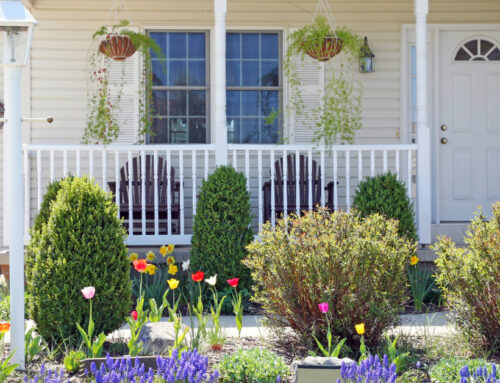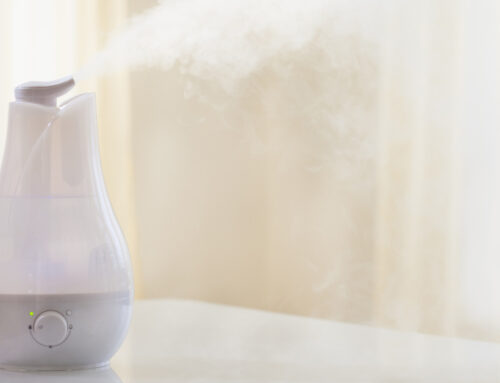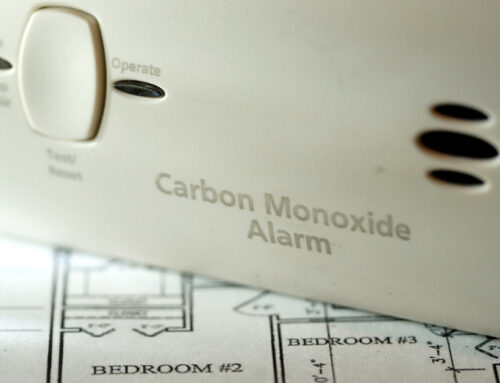Air cleaner vs. filter
There are three main categories of air cleaners for central forced-air heating and cooling systems.
- Media (or mechanical) air cleaners. This is what most people think of when the term “air filter” is mentioned.
- Electronic (or electrostatic) air cleaners
- Hybrid air cleaners combining elements of the first two categories
The air cleaner is the system, the filter is a component of that system. Media air cleaners have a rack or holder into which the filter is placed. Some air cleaners may not include a traditional filter.
For this article, we will focus on the first category, media air cleaners.
The struggle is real
There is a fundamental struggle between the effectiveness of air cleaners and their impact on your HVAC system. The most effective air cleaners (especially media filters) restrict airflow in your system, making your system’s blower work harder.
Airflow that is too restricted can damage your system both in cooling and heating modes. In cooling mode, it can cause your coil to freeze up and damage your condenser. In heating mode, excess heat can build up, which can damage your heat exchanger and cause your furnace to cycle on and off excessively.
All of this can lead to a variety of unintended consequences:
- Wear and tear on your HVAC system (causing more breakdowns and a shorter life expectancy)
- Decreased efficiency
- Decreased heating and cooling capacity
- In certain situations, it’s possible to introduce other contaminants because of increased duct leakage
Media air cleaners
Media filters are commonly spun fiberglass or pleated paper or cloth in a cardboard frame. These filters work to remove dust, pollen and other particulates when air passes through them.
Any media filter will begin to resist airflow as it collects contaminants. The cleaner the filter, the better the airflow.
Spun fiberglass or poly filters are the least effective at cleaning air but are also the least restrictive of airflow. They can capture large contaminants like pet hair and large particles but are progressively less effective as particle size decreases.
“Better” filters
With poor air quality potentially causing health issues, it’s tempting to run out and buy a high-efficiency filter. Many filters carry MERV ratings. MERV stands for Minimum Efficiency Reporting Value and is a scale that runs from 1 to 20 although most filters don’t go beyond 16. Filters with higher MERV ratings are able to remove a greater percentage of smaller particles from the air.
Consumer Reports says the American Lung Association recommends a MERV rating of 13 or above, provided it works with your central air system.
High MERV filters are less porous, which adds to their efficiency at removing particulates. It also means your system will work harder to pull air through the filter. This can result in reduced airflow through your system, leading to the problems mentioned above.
This doesn’t mean you can’t use higher MERV-rated filters. Done properly, you can.
How to
It is possible to increase filtration effectiveness by using higher MERV filters and increasing their size, or by adding a second filter in parallel with the first.
More filter area decreases face velocity (the rate of airspeed) through the filter or filters.
When air is pulled past a filter too quickly, particles that would normally be caught by the filter can make it through. It can also increase “bypass” – air that sneaks between the edge of your filter and its holder.
Sounds complicated, I know. Your technician can help you determine the best size to use based on the ratio of filter area to airflow rate.
Every system is unique
As I mentioned earlier, it would take more space than we have here to fully discuss the science behind air filtration. In future columns, we’ll discuss other categories of air cleaners you might consider, including electronic air cleaners, hybrid air cleaners and specialized air cleaners such as HEPA filters.
Each system will have its own unique characteristics and requires its own solution. The best advice we can give you is to change your filters regularly and call your trusted HVAC contractor to give you their best solutions for your particular situation.






